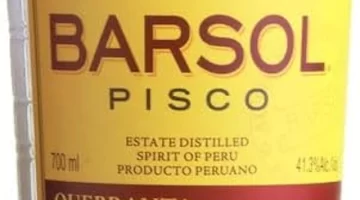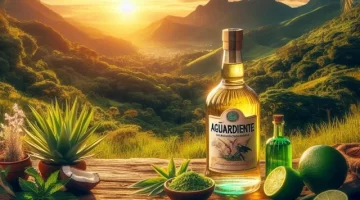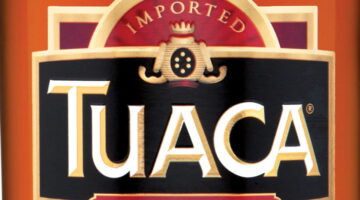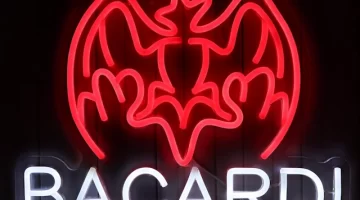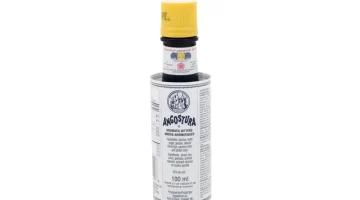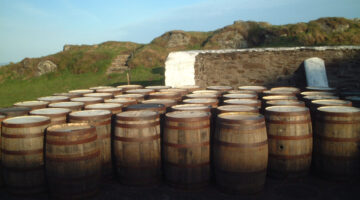What is Cachaca?
Travel Distilled explains what Cachaca is, the history of this Brazilian spirit, how and where it’s made, how to drink it and its use in cocktails and cooking.
The world of spirits is diverse, but if you’re yet to discover the vibrant flavors of cachaca (pronounced ka-sha-sa), you’re missing out on one of Brazil’s greatest treasures. Simply put, cachaca is a Brazilian spirit distilled from fresh sugarcane juice. Its rich flavor profiles that hint of grassy sweetness and subtle spiciness make it a favored choice for sipping and mixing into cocktails. It became the country’s national spirit in 2013.

What is Cachaca’s History?
The history of cachaca is intricately woven into the cultural tapestry of Brazil. It dates back to the 16th century when Portuguese colonists first started sugarcane cultivation in Brazil. To avoid wasting the sugarcane residue, they started distilling it into a potent spirit, thereby giving birth to cachaca. The name comes from the Portuguese word ‘cagaça,’ meaning “something bad” or “rotten.”
Cachaca played a pivotal role in Brazil’s colonial period. It was initially a beverage for slaves but gradually gained popularity among the upper classes and even became a currency in trade for African slaves. Today, cachaca is cherished as a symbol of Brazilian identity and a testimony to its rich history.

How is Cachaca Made?
Cachaca is typically produced in two distinct types – industrial (also called “white” or “silver”) and artisanal (“gold” or “aged”). The industrial type is mass-produced using column stills and bottled without aging. In contrast, artisanal cachaca is distilled in smaller quantities using traditional copper pot stills and aged in wooden barrels to allow a fusion of complex flavors.
Regardless of the type, the production process of cachaca is quite unique. Fresh sugarcane is pressed to extract juice, which is then fermented. The fermented juice is distilled, and in the case of artisanal cachaca, the distilled spirit is aged in wood barrels to impart a distinctive flavor and color.
Where is Cachaça Made?
While cachaça can be produced anywhere globally, true aficionados recognize its Brazilian origins. Distilleries in Minas Gerais, a state in southeastern Brazil, are renowned for crafting some of the finest cachaças. The climate and fertile soil of this region contribute to the unique qualities of the sugarcane, influencing the spirit’s flavor profile and character.
See our review of Abelha Organic Cachaca.
What is Cachaca’s Cultural Significance?
Beyond its place in liquor cabinets, cachaca holds significant cultural importance in Brazil. The spirit plays a pivotal role in traditional celebrations and ceremonies, and it is savored across Brazil’s diverse regions, each of which has unique ways of drinking and enjoying cachaca.
When and How to Enjoy Cachaca
Although cachaca is perfect for any occasion, Brazilians often consume it during happy hours known as “Happy Cachaca Hour.” The best way to appreciate the refined taste of aged cachaca is to sip it neat or on the rocks. For white cachaca, consider mixing it in traditional cocktails such as Caipirinha. To enjoy it the Brazilian way, you can pair cachaca with traditional snacks like codfish balls or cheese bread.
Cachaca in Cocktails and Cooking
Cachaca’s versatile flavor profile makes it a favorite base spirit for cocktails. The most famous cachaca cocktail is undoubtedly the Caipirinha – a simple mix of cachaca, lime, and sugar. However, mixologists are getting increasingly creative and using cachaca to concoct a myriad of innovative cocktails.

Beyond cocktails, cachaca is also finding its way into the culinary world. Brazilian recipes often use it for marinating meats, preparing sauces, and even in dessert recipes to give them a unique twist. So, don’t shy away from experimenting with cachaca in your cooking and baking!
In conclusion, cachaca is more than just a spirit. It is a unique symbol of Brazilian heritage, carrying with it centuries of history and culture. Whether sipped neat, mixed into a cocktail, or used in cooking, cachaca offers an authentic taste of Brazil’s vibrant lifestyle and culinary landscape.


